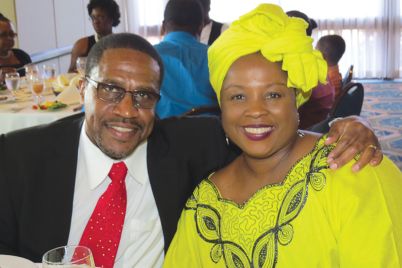Time and energy are resources that we too rarely have enough of, and leaders never seem to have enough of either. Yet, we rarely think about the things we do on automatic that waste time and energy.
BY MICHAEL F. BROOM, Ph.D., Organization Development Psychologist
From our previous article, we know that we all make many choices automatically. They save us time and energy, and we don’t notice them as choices even when they are doing the opposite — when our automatic choices are actually wasting time and energy.
Time and energy are resources that we too rarely have enough of, and leaders never seem to have enough of either. There are staffs to be managed, customers to coddle, finances to figure out, superiors to satisfy, and the partner and kids at home to be pleased and loved. The list goes on and on. Time’s a-wasting.
Yet, we rarely think about the things we do on automatic that waste time and energy. I’m not talking about watching TV, resting, having a glass of wine, or playing with the kids. Those activities are not wasteful. They are useful for both pleasure and energy renewal. Do them well.
It’s our automatic choices to complain, blame, worry, make excuses, and rationalize that should concern us. Procrastinating is another; too often, I’ll do anything else when I should be working on my next article.
Then there is analyzing for the 30th time how I’ll talk my editor into giving me a bigger advance. Arguing and trying to convince are too rarely useful to be anything but energy sponges. All are activities that sponge up our time and energy, resulting in nothing worthwhile.
Then there’s pretending: pretending we know something we don’t, pretending we’re okay when we’re not, pretending we’re cool when we don’t feel cool at all. Again, the list goes on.
What are your energy sponges? Make a list of them. If you can’t think of many, ask your buddy at work or your partner and kids at home. They know.
The complexity of life in today’s organizations and the pace of change within them is ever-increasing. Successful leaders must efficiently use their energy and time and minimize behaviors — their energy sponges — that waste them.
Why do we have energy sponges if they are such a waste? At some point in our lives, they helped us accomplish whatever goals were at hand. Your whining got you that toy your parents were reluctant to give you. Through procrastinating, someone else took out the garbage. When you argued long enough, the other person gave in.
As adults, these energy sponges are rarely useful. To minimize them, we must notice them. Notice them as automatic habits from our past. Then we can, with intention and deliberation, choose a different focus for our energy.
Dr. Maggie Parker owns and runs a sizeable data-mining organization. She needed to have a conversation with a new vice president about his seemingly uncooperative demeanor.
She procrastinated, worrying about offending him and possibly losing him. She also blamed herself for not working more closely with him.
I asked her what she would do if she were at her very best? She said she would calmly and politely ask him why he seemed to question everything she said. Getting the point, she said she would speak to him the next day.
At our next meeting, she said all her energy sponges started the morning she planned to confront him. However, she focused on her ability to choose action rather than continue with her sponges. She told him about her concern.
He said he had not meant to be uncooperative. He just wanted to show that he was on top of his game and promised to tone it down.
There isn’t enough time in a day for leaders to satisfy all the demands that their role and life offer them. Time and energy are too precious to use up doing things that are neither productive nor satisfying.
By expanding our choice experience, we can master how we use our energy to improve our efficiency and effectiveness. From there, we can also help those who follow us to expand their experience of choice.
A great formula to create great teams and organizations that will thrive and prosper!
There is always more to learn about creating great teams and organizations. You will significantly deepen your understanding and skills for working with organizations and teams if you sign-up for the powerful programs: “The Nine Disciplines of Leadership & Self-Mastery and The Seven Core Actions of Complex Change.”
These master class-level programs are both intensive and comprehensive, with a clear focus on skill-building. Check them out at chumans.com/master-classes or email me at michael@chumans.com.
 Michael F. Broom, Ph.D., has been an organization development psychologist for 45 years. He consults with organizations of all types, including Google and Genentech, among others. He has taught at major universities, including Johns Hopkins and American. For more information, you can contact him at www.chumans.com or michael@chumans.com.
Michael F. Broom, Ph.D., has been an organization development psychologist for 45 years. He consults with organizations of all types, including Google and Genentech, among others. He has taught at major universities, including Johns Hopkins and American. For more information, you can contact him at www.chumans.com or michael@chumans.com.








